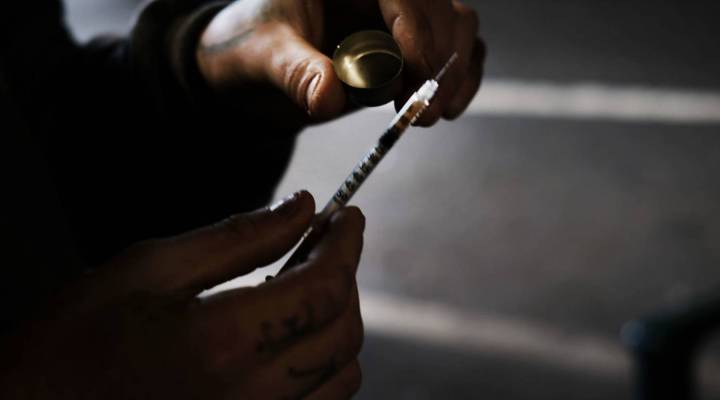
Philadelphia makes an economic case for safe injection sites
Philadelphia makes an economic case for safe injection sites

More U.S. cities are talking about opening supervised places for addicts to inject their drugs, including San Francisco, with a target opening date of this summer.
In Philadelphia, the city is inviting private organizations to operate safe injection sites, which would have staff on hand to hand out clean needles and revive users who overdose.
The plan is meeting opposition from some city councilors and community members who are reluctant to see sites open in their neighborhoods. They’re worried that supervised injection could exacerbate the heroin problem. Louis D. Lappen, U.S. attorney for the Eastern District of Pennsylvania, told public radio station WHYY that the Department of Justice “is not supportive of the idea of a safe injection site because you’re talking about an extremely dangerous situation with people injecting these drugs into their veins in rates we have never seen before…. We can’t just say, wow, that’s a really great idea.”
But city leaders say supervised injection will save lives. And they’re making the argument that safe injection sites make economic sense.
At the needle exchange
Philadelphia’s heroin problem is on full display at Prevention Point, which runs a needle exchange in an old brick church along the “el” tracks in Kensington. It’s a neighborhood where abandoned buildings give way to encampments, people in tents and others on mattresses under bridges.
On a recent afternoon, 300 people came through. Some looked healthy and well dressed, while others appeared disheveled and had lesions on their faces.
People here swap old needles for new. One of them is 37-year-old heroin user Ann. We’re not using her last name because she’s concerned about being targeted for her drug use. Ann said she’s been revived after overdosing five times.
“I’ve turned blue. I stopped breathing. People couldn’t wake me up,” she said.
Giving people like Ann a better chance of surviving overdoses is a main argument for supervised injection. Prevention Point Executive Director Jose Benitez said a needle exchange isn’t enough to slow the number of deaths.
“In Philadelphia, 1,200 people died in the last calendar year, so we’re talking about saving people’s lives,” he said.
The city estimates the sites will save up to 76 people every year.
The economic argument
In a recent report, it’s also touting the economic benefits of supervised heroin use. It’s an expensive problem to manage right now. Eva Gladstein, Philadelphia’s deputy director for Health and Human Services, estimates the opioid crisis costs the city well over $26 million a year. Every day, she said, city workers fan out across Philadelphia.
“Our ambulance drivers, our doctors, our case managers, the list goes on and on,” she said.
City officials also know it can be difficult to drum up sympathy for people who wrestle with heroin addiction. So city hall talks about how these sites would drive down spending on the epidemic and benefit everybody.
“Instead of being able to use that money to beautify a park or to fill a pothole, we’re spending that on shelter, or tearing down an abandoned or vacant building,” Gladstein said.
The city says safe injection sites would reduce expensive ambulance rides, emergency room trips and hospital visits, saving at least $2 million every year in direct health care costs.
Temple University health economist Catherine Maclean said there’s a lot of evidence that treatment, which will be offered through safe injection sites, carries its own economic benefits.
“They’ve allowed people to stop using substances, and they’ve allowed them to reintegrate into society and work in productive ways,” she said.
But treatment costs money and takes time. Plenty of people relapse. Plus, Philadelphia intends to provide housing services through the safe injection sites. Some could need those services for years, which could wipe out savings, said Northwestern economist Craig Garthwaite. But he said maybe, in this case, money isn’t the point.
“Even if we don’t save money, but we have fewer people dying, it doesn’t just need to show up in cost savings, it can show up in increased longevity and fewer people passing away,” he said.
The city hopes to open the first safe injection site in the next six to 12 months. The challenge in Philadelphia, and other U.S. cities, is persuading critics that saving lives, in and of itself, is reason enough.
There’s a lot happening in the world. Through it all, Marketplace is here for you.
You rely on Marketplace to break down the world’s events and tell you how it affects you in a fact-based, approachable way. We rely on your financial support to keep making that possible.
Your donation today powers the independent journalism that you rely on. For just $5/month, you can help sustain Marketplace so we can keep reporting on the things that matter to you.


















